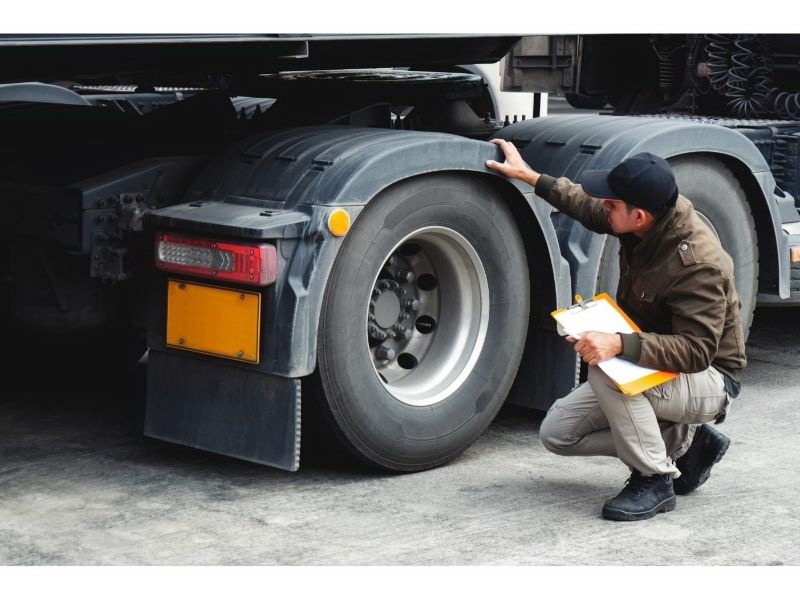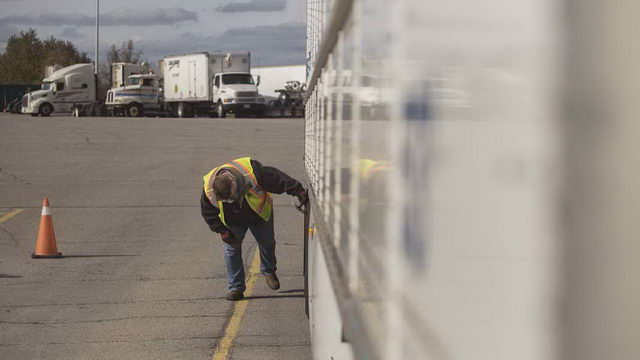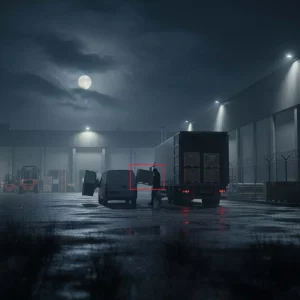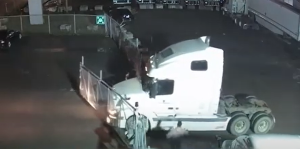The Importance of Inspection Enforcement with Trucks and Trailers
Sometimes, some truck drivers may feel like vehicle inspection is wasting their time. They understand the importance of driving a safe vehicle, but they also want to get out on the road and make their next delivery as quickly as possible. This means they might cut corners when doing their inspections. Unfortunately, while the objective is to save time by cutting the inspection short, the reality is that missing an inspection can actually cost a lot of time and money. That’s why inspection enforcement is so important.
Without proper inspection enforcement, vehicles could end up on the road with serious safety issues. That could negatively affect the reliability of deliveries as well as the safety of drivers and others. A truck that isn’t properly inspected could end up breaking down, crashing, or needing to stop for repairs. This obviously isn’t good for business or for the reputation of the trucking company. Vehicles that drive with damaged equipment or safety issues can also be stopped by roadside inspection stations. Not only will this slow them down and put the drivers behind schedule, but it could also result in significant fines.
As you can see, failing to conduct proper inspections could have significant repercussions that can cost time and money. Unfortunately, ensuring that inspections are done correctly and thoroughly each time can also be difficult for many businesses. That’s because traditional inspection enforcement is tough to do.
Why Traditional Trucking Inspection Enforcement Doesn’t Always Work
It’s important for truck drivers to properly inspect their vehicles and trailers before they drive them out on the road. Failing to conduct a thorough inspection can lead to serious problems including injuries, accidents, severe fines, or worse. Most drivers understand this, but they also want to get their trucks out and onto the next delivery as quickly as they can. This means that some drivers may not do a detailed vehicle inspection each and every time. Unfortunately, all it takes is a single mistake or overlooked issue to cause a serious problem.
This is why inspection enforcement is crucial. Having someone on hand to make sure that all inspections are completed up to standards every time can save a trucking company a lot of time and money. However, the difficult logistics involved with traditional inspection enforcement means that many trucking companies can’t provide the sort of detailed enforcement they need.
The Challenges with Traditional Inspection Enforcement
While nearly everyone involved (drivers, management, etc.) understands the importance of proper truck and trailer inspections, there are many challenges involved in the process. This includes issues with inspection enforcement.
It’s difficult to monitor inspections when you’re using traditional means. Having to station someone in the inspection area at all times, to ensure that every inspection is monitored, isn’t practical or cost-effective. Having someone called to the inspection area each time an inspection is taking place doesn’t make logistical sense either.
The result is that many drivers are left operating on an honor system. Unfortunately, while trying to get on the road as quickly as possible, some drivers may cut their inspections short. If this happens, it’s difficult for the business to know which inspections were done properly and which were not. In many cases, you won’t find out that inspections weren’t thoroughly completed until it’s too late.
Without accurate inspection monitoring and record keeping, you may only find out about an issue when a vehicle breaks down, ends up in a collision, or fails a roadside inspection. Once this has happened, the damage has been done.
If your vehicles routinely have issues, this won’t just cost you time and money in the short-term. It could also damage your company’s reputation. That could result in lost clients and other problems that can be potentially devastating for a business.
Perhaps the most straightforward way to monitor vehicle inspections is to have a person physically on site watching the inspection. While this may seem like the right solution, there are many possible issues that arise in practice.
First of all, it doesn’t really make sense to have an employee (or employees) who are solely dedicated to watching inspections.
- What do they do when no inspections are taking place?
- Do they perform other duties or do they simply wait until someone needs to inspect a vehicle?
- If they perform other duties, who calls them over to monitor an inspection?
- And are they able to perform that task right away?
Unfortunately, many companies struggle with how to accurately monitor vehicle inspections in an effective and efficient way. This can be a big problem as it opens up the possibility of inspections not being performed as required.

How to Improve Trucking Inspection Enforcement
The good news is that there are ways to improve the inspection enforcement process. One proven way to make the process stronger is to use live monitoring. Live monitoring services are designed to be an affordable and effective way to watch over an area 24/7. When you have a live monitoring service installed at your business, cameras are placed in the area along with two-way speakers and other sensors. These cameras are monitored by professional agents at all times.
These monitoring agents become responsible for inspection enforcement at your company. They will watch over each inspection, ensuring that it is completed thoroughly and accurately. If drivers do not conduct the inspection according to protocol or they do not spend the time needed to complete a detailed inspection, the monitoring staff can communicate with the driver using the two-way speaker system. They can let them know what was missed from the inspection, ensuring that it is completed properly before the driver leaves.
The remote monitoring station can also be responsible for gates, allowing them to control access in and out of the yard. This lets them deny exit access in situations where inspections are not properly completed and where drivers do not appropriately respond to a request to conduct a more thorough inspection.
All inspections are recorded as well, and these records are retained for at least 30 days. If there are any issues, the video footage can easily be reviewed to determine if there are any issues. In addition, accurate inspection reports are prepared and distributed regularly. This allows company management to understand exactly what happens during the inspection process. This detailed information provides an opportunity for additional training if needed.
Using Remote Monitoring for Vehicle Inspection Enforcement
As mentioned, a big issue with trucking inspections is that it can be tough to find a way to ensure that they’re done properly. One solution that can drastically improve the thoroughness and reliability of your vehicle inspections is remote monitoring.
Remote monitoring involves installing cameras, speaker systems, and other sensors at a property. These devices are watched over 24/7 by professional monitoring agents. Monitoring tools can be installed in your company’s inspection area to provide extensive inspection enforcement. Agents can then validate that all inspection protocols are followed each and every time. This is done by using many different tactics.
First, agents will know what needs to be inspected on a vehicle and they will make sure the driver checks everything as they should. The inspection is also recorded, so there is evidence that it was completed. Agents make note of the time taken on the inspection as well, to verify that all inspections are as thorough as required.
If the inspection is not completed up to the required standard, monitoring agents can communicate with the driver through a two-way speaker system, providing them with the information they need to complete the inspection properly. Monitoring agents can even control gate access and prevent drivers from leaving the property until the inspection is complete.




